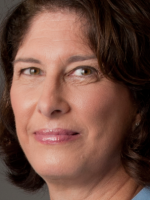RENEE MONTAGNE, host:
This is MORNING EDITION from NPR News. I'm Renee Montagne. Good morning.
STEVE INSKEEP, host:
And I'm Steve Inskeep.
Travel in any direction from the White House this morning, and you are traveling through territory dominated by Republican John McCain and Democrat Barack Obama. They both won primaries in Washington and the surrounding states, Virginia and Maryland. McCain beat Mike Huckabee. And for Democrats, one surprise was who favored Obama. Hillary Clinton's opponent assembled a broad coalition of voters, including many women.
Here's NPR national political correspondent Mara Liasson.
MARA LIASSON: For the first time, Barack Obama is now ahead in the delegate count. According to the Associated Press, last night's wins left him with 1,212 delegates. Senator Hillary Clinton has 1,191. When the results came in, Obama was already in Wisconsin, where the next primary will be held.
Senator BARACK OBAMA (Democrat, Illinois; Democratic Presidential Candidate): At this moment, the cynics can no longer say that our hope is false. We have now won East and West, North and South and across the heartland of this country we love.
(Soundbite of cheering)
LIASSON: Obama has been slowly growing his coalition of voters, and last night he did it by making inroads into Clinton's. Exit polls in Virginia, for example, show Obama won 90 percent of black voters, but he also won Latinos and the white vote - 52 to 47 percent. Clinton held on to white women, but by only six points. Obama won white men by a bigger margin.
Sen. OBAMA: This is the new American majority. This is what change looks like when it happens from the bottom up. We know that the status quo in Washington just won't do. Not this time, not this year.
LIASSON: Speaking at a rally in El Paso, Texas, Clinton made no mention of the fact that last night's results means she has now lost eight contests in a row. Her sights are firmly fixed on the two big March 4th primaries in Ohio and Texas, where she continues to lead in the polls.
Senator HILLARY CLINTON (Democrat, New York; Democratic Presidential Candidate): And we're going to sweep across Texas in the next three weeks, bringing our message about what we need in America, the kind of president that will be required on day one to be commander-in-chief, to turn the economy around. I'm tested. I'm ready. Let's make it happen.
LIASSON: Clinton's campaign is still in the midst of a staff shake-up. Yesterday, deputy campaign manager Mike Henry resigned, and earlier this week Patty Solis Doyle was removed as campaign manager. For voters like John Lloyd of Richmond, Virginia, last night represented an acceptance of something Obama has struggled to prove to Democrats: that is he is electable in the fall.
Mr. JOHN LLOYD: Well, initially, I thought that Barack Obama didn't have a ghost of a chance. I'm the grandson of slaves. When I cast a vote, their faces cross my mind.
LIASSON: In the Republican race, John McCain won all three primaries, but without the support of many of the most conservative Republicans. In Virginia, two-thirds of the 30 percent of voters who called themselves very conservative chose Mike Huckabee. But McCain is so far ahead in the delegate count that he could afford to take a not-so-subtle swipe at the man who, at least for the moment, is the Democratic front-runner.
Senator JOHN MCCAIN (Republican, Arizona; Republican Presidential Candidate): Hope is a powerful thing. I can attest to that better than many, for I've seen men's hopes tested in hard and cruel ways that few will ever experience. And I stood astonished at the resilience of their hope in the darkest hours because it didn't reside in an exaggerated belief in their individual strength, but in the support of their comrades and their faith in our country.
To encourage a country with only rhetoric rather than sound and proven ideas, the trust and the strength in courage of free people, is not a promise of hope. It's a platitude.
(Soundbite of applause)
LIASSON: Huckabee spoke to his supporters in Arkansas, saying his strong showing in Virginia was reason to stay in the race.
Mr. MIKE HUCKABEE (Former Governor, Arkansas; Republican Presidential Candidate): There's still a real sense in the Republican Party of a desire to have a choice - a desire to make sure that the voters who want a solid conservative, absolutely pro-life candidate, still exists.
LIASSON: Huckabee says he didn't major in math in college. He majored in miracles. And he'll need a real one now to wrest the nomination from John McCain, who has more than three times as many delegates. Katie Valentine explained why she voted for McCain as she left her polling place in Maryland.
Ms. KATIE VALENTINE: We need somebody strong.
LIASSON: What was the most important issue for you?
Ms. VALENTINE: His view on war. We're there for a reason. You know, whether people like it not, we need to be there until the job's done.
LIASSON: Although his wins in D.C. and Maryland were much more comfortable, McCain could not miss the signs in Virginia that marked how much work he still has to do to unite his party behind him.
Mara Liasson, NPR News, Washington. Transcript provided by NPR, Copyright NPR.






